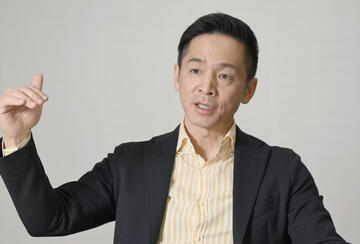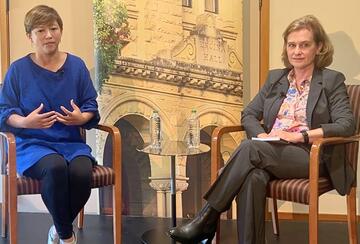Japan Program at APARC - News
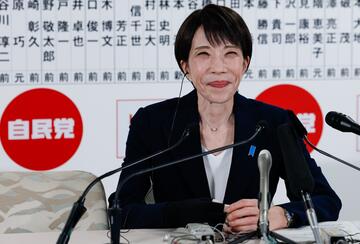
In a new APARC Briefing explainer, APARC and Japan Program Director Kiyoteru Tsutsui analyzes how Takaichi secured a landmark supermajority in a landslide election win for her party and what this outcome means for Japan's fiscal policy, constitutional change, its relationship with China, and its alliance with the United States.

From the practices of higher education institutions to diaspora networks, talent return programs, and immigration policies of central governments, a comparative analysis by Stanford sociologist Gi-Wook Shin shows how different national human resource strategies shape economic success.
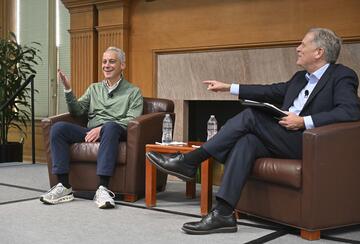
"Trump Tries to Rule, Not Govern": Rahm Emanuel on America's Political Crisis and Fading Alliances
In a Stanford fireside chat and on the APARC Briefing podcast, Ambassador Rahm Emanuel warns of squandered strategic gains in the Indo-Pacific while reflecting on political rupture in America, lessons from Japan, and the path ahead.
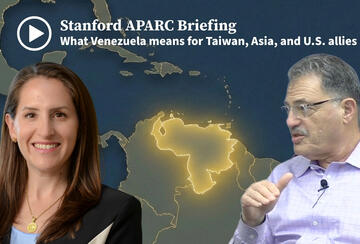
Speaking on the APARC Briefing video series, Larry Diamond and Oriana Skylar Mastro analyze the strategic implications of the U.S. operation in Venezuela for the balance of power in the Taiwan Strait, Indo-Pacific security, America’s alliances, and the liberal international order.
In a special feature story, Japanese news publisher Nikkei spotlights the life and career of Stanford sociologist Kiyoteru Tsutsui.
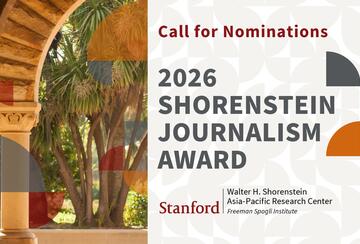
Sponsored by Stanford University’s Shorenstein Asia-Pacific Research Center, the annual award recognizes outstanding journalists and news media outlets for excellence in covering the Asia-Pacific region. News editors, publishers, scholars, and organizations focused on Asia research and analysis are invited to submit nominations for the 2026 award through February 15, 2026.
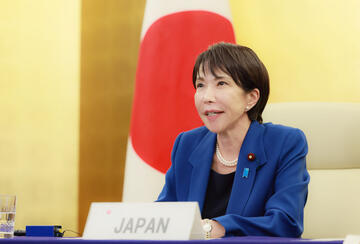
Stanford sociologist Kiyoteru Tsutsui, director of the Shorenstein Asia-Pacific Research Center and the Japan Program, evaluates Japanese Prime Minister Sanae Takaichi's first month in office.
Award-winning filmmaker Ema Ryan Yamazaki discussed her documentary portrait of a large Japanese elementary school in suburban Tokyo and reflected on the delicate balance between community and self.
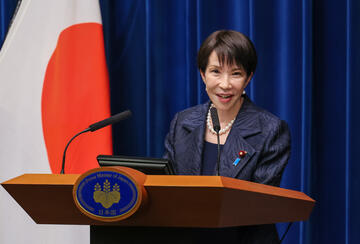
Stanford sociologist Kiyoteru Tsutsui, director of the Shorenstein Asia-Pacific Research Center and the Japan Program, explains the path to power of Japan’s first female prime minister and what her leadership means for the country's future.
At the second annual Sushi Hackathon, teams of student innovators joined technology professionals and entrepreneurs at Stanford to explore ethical AI and showcase AI-powered solutions to promote sustainability and efficiency in the fisheries industry.
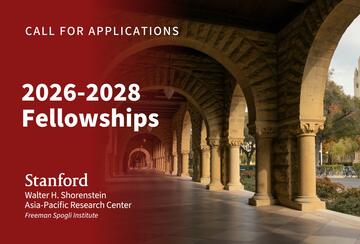
The center offers multiple fellowships in Asian studies to begin in fall quarter 2026. These include a postdoctoral fellowship on political, economic, or social change in the Asia-Pacific region, postdoctoral fellowships focused on Asia health policy and contemporary Japan, postdoctoral fellowships and visiting fellow positions with the Stanford Next Asia Policy Lab, and a visiting fellow position on contemporary Taiwan.
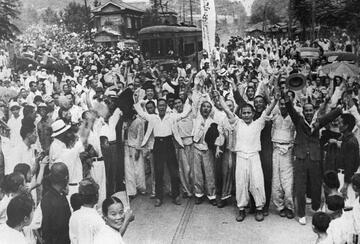
Within Asia, World War II memories and commemorations are not only different from those in the United States but also divided and contested, still shaping and affected by politics and nationalism. Only when U.S. and Asian leaders come together to mark the end of the Asia-Pacific war can they present a credible, collective vision for the peace and prosperity of this important region.

As global audiences and digital platforms reshape cultural exchange, APARC’s Japan Program convened leading creators, producers, and scholars at Stanford to examine the creative ecosystems driving the international success of Japan’s content industries and their growing influence on innovation, fandom, and international collaboration.

Shinichi Kitaoka, a visiting scholar at APARC and Japan Program fellow, teaches a spring quarter seminar that brings students and scholars together to examine Japanese political history from the Yedo period to the present through a global and comparative lens.

As geopolitical uncertainty deepens and traditional alliances are tested, APARC’s Japan Program and the United States-Japan Foundation convened thought leaders at Stanford to explore the shifting bilateral cooperation across areas spanning global democracy, economic resilience, civil society and governance, and the unexpected power of baseball diplomacy.
Tsutsui, whose research focuses on globalization, human rights, social movements, and political sociology, currently serves as deputy director of the center, and has been the director of the Japan Program since 2020.
We are deeply saddened to share that our friend and colleague, Michael Armacost, passed away on Saturday, March 8, 2025. A former U.S. ambassador to the Philippines and Japan, Mike was a Shorenstein APARC fellow until his retirement in 2021.

Approximately 20 percent of Japanese women are likely to choose a different surname if a dual-surname option for married couples is introduced, according to the latest survey of the Stanford Japan Barometer. A new installment in the Asahi Shimbun’s GLOBE+ series features these and other Japan Barometer survey results.

Sponsored by Stanford University’s Shorenstein Asia-Pacific Research Center, the annual Shoresntein Award promotes excellence in journalism on the Asia-Pacific region and carries a cash prize of US $10,000. The 2025 award will honor an Asian news media outlet or a journalist whose work has primarily appeared in Asian news media. Nomination entries are due by February 15, 2025.

APARC recently hosted two panels to consider what a second Trump presidency might mean for economic, security, and political dynamics across Asia and U.S. relations with Asian nations.

Held at Stanford and hosted by the Shorenstein Asia-Pacific Research Center, the third annual Dialogue convened global leaders, academics, industry experts, and emerging experts to share best practices for advancing Sustainable Development Goal 9 in support of economic growth and human well-being.

In a recent visit by a delegation from Japan's Embassy to the United States and Consulate-General of Japan in San Francisco, Ambassador Shigeo Yamada and Stanford experts discussed pressing issues affecting U.S.-Japan relations, regional security, and the international legal order. Hosted by APARC's Japan Program, the visit highlighted the role of academic institutions in informing policy and global cooperation.

A new book by APARC Visiting Scholar Michael Beeman offers a timely analysis of the shift in United States' foreign trade policy, examines its recent choices to “walk out” on the principles that had defined the global trade system it had created, and offers recommendations for a redefined and more productive trade policy strategy.

Open Faculty Positions in Japanese Politics and Foreign Policy, Korean Studies, and Taiwan Studies
Stanford University seeks candidates for a new faculty position in Japanese politics and foreign policy, a faculty position in Korean Studies, and a new faculty position on Taiwan. All three appointments will be at the Freeman Spogli Institute for International Studies and affiliated with Shorenstein APARC.

A new installment of the Asahi Shimbun’s GLOBE+ series highlights Stanford Japan Barometer findings about Japanese public opinion on recognizing same-sex unions and legalizing a dual-surname option for married couples. Co-developed by Stanford sociologist Kiyoteru Tsutsui and Dartmouth College political scientist Charles Crabtree, the public opinion survey tracks evolving Japanese attitudes on political, economic, and social issues and unveils how question framing changes the results of public opinion polls.


